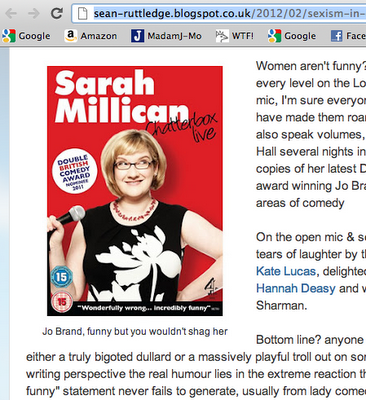Who needs to go to
Edinburgh to see fine fringe theatre, when Bristol Old Vic delivers it to our
doorstep here in the South West? Yet again, this trusted theatre delivers a
packed programme of excellent and challenging performances.
My fist visit
during the venue’s Autumn 2012 programme was to the downstairs Studio to see
Mad About The Boy, a blunt three-hander written by Gbolahan Obiesesan. After
deservedly winning the Fringe First Award at Edinburgh last year, the play is
now on tour around the UK… and it’s only on in Bristol for three days, so catch
it while you can.
Our protagonist is Boy
(Bayo Gbadamosi), a 14-year-old youth struggling to find his place in
contemporary inner-city life. He is supported by Dad (Jason Barnett) and school
social worker Man (Simon Darwen). Boy is on the cusp of falling out of school
and into a detention centre, while the older Man and Dad struggle to understand
where things went wrong and how they can help.
What particularly
struck me was the message, plainly and clearly delivered by Man, that Boy needs
to respect women. When Boy asks for advice on how to make a girl like him,
saying “If you want me to adjust my attitude, tell me how to get the girl I
like to give me head”, a frustrated Man tells him “You got no respect.” Boy
goes on to list the various uses he sees the girl offering him, all of which
are derogatory.
Meaning it comes as no
surprise that the crisis in the plot centres around an appalling and violent attack
on a girl. The atmosphere in the Studio’s audience as Boy, Dad and Man argued
over what happened was thick with tension, and I found my fingers tightly
gripping the glass in my hands. While it would have altered the dynamics to
introduce a new character at this point, I also wondered about the potential
benefits of introducing the girl at this stage.
All three actors are
faultless in their passion, vivacity and performance. Throughout four acts, the
characters stand facing the audience - rather than each other – to deliver
their fast-paced lyrical lines, in a directorial move by Ria Parry that really
engages the audience and includes them in the action. When Man says “So what do
you choose?”, he could be asking the audience as much as he’s asking Boy.
Mad About The Boy is
astonishingly good theatre, delivering quick-fire, intelligent lines with
precision, talent and a touch of humour (“I ain’t no Peter Andre, though”).
That the underlying message was about respect for women and for taking
responsibility for your actions, only makes me recommend this play even more.
Please click here to
visit the Bristol Old Vic website for more information and to book tickets. Mad
About The Boy is on until 29 September.








